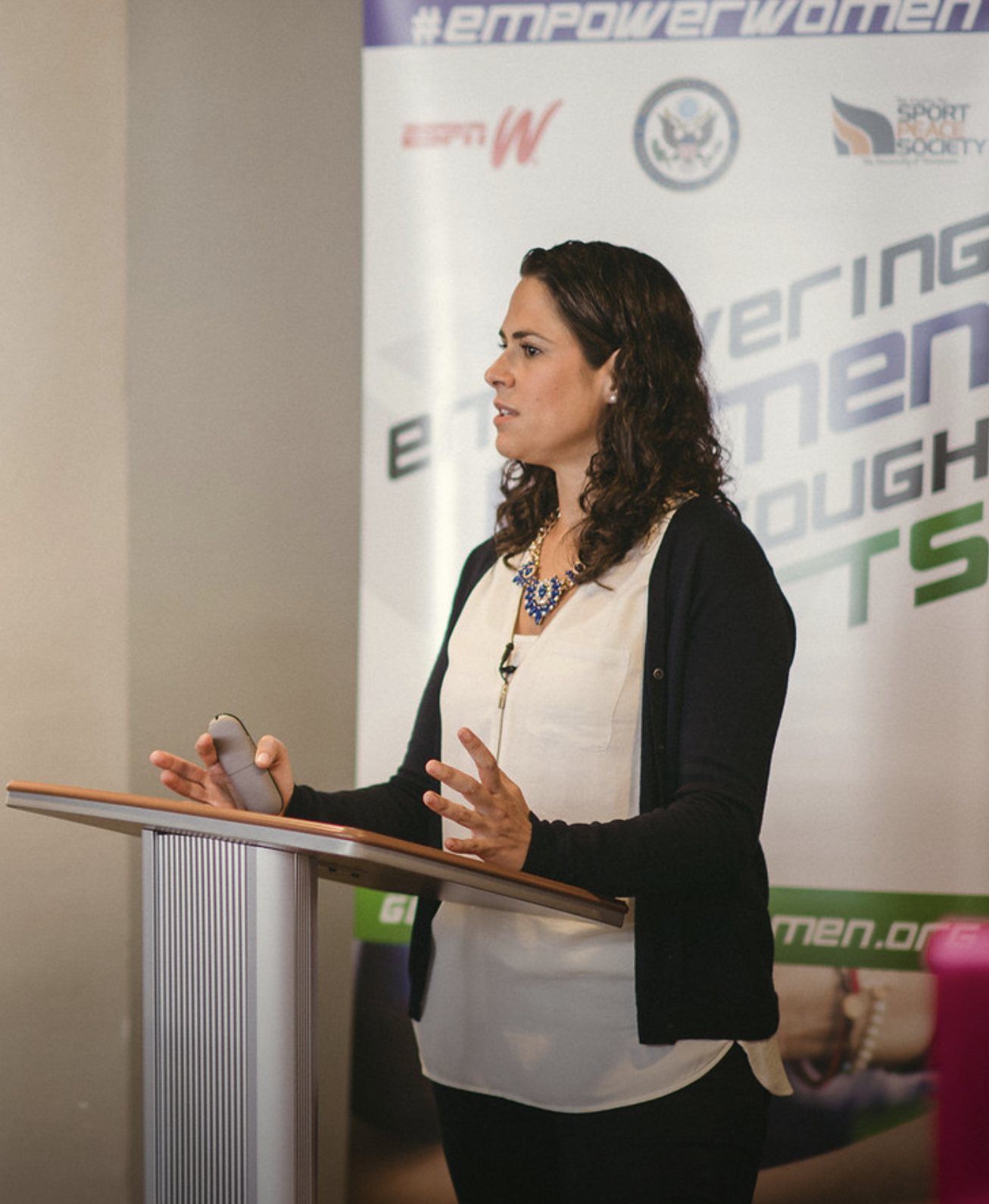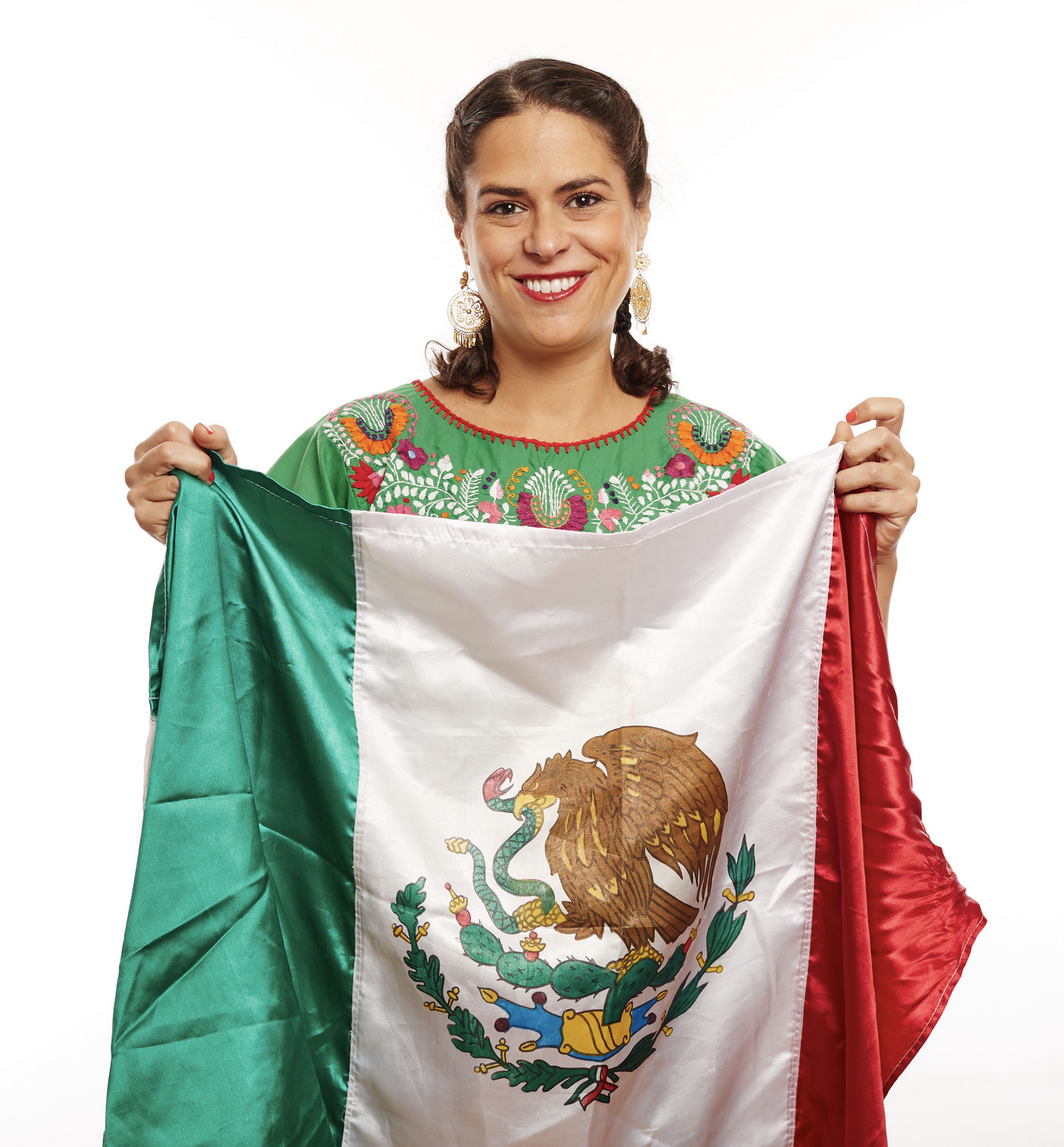
Cecilia Vales dreams of every girl in Mexico going to college to broaden their opportunities, and she is determined to knock down the barriers that stand in their way. She believes that access to sport is the gateway to education and the means through which girls can achieve their dreams. Encouraging more girls to play sports is a challenge, however, since many lack basic equipment, safe places to play, and reliable transportation.
There are also larger, cultural issues that are holding women back. “There’s a lot of violence in my community and throughout the country,” Cecilia says, considering the barriers that women face in their lives and careers. “Women suffer from many forms of abuse.” In fact, Mexico has one of the worst gender equality situations in all of Latin America, with 2,551 cases of femicide reported just in the first seven months of 2020. This unsettling trend is mirrored in statistics on gender violence, early and unwanted pregnancies, gangs, and lack of access to education and physical activity.
“Sometimes,” Cecilia says, “the world closes in for them, because they think that the only opportunity they have is to be mothers.” Cecilia wants to inspire girls and women to achieve not only the sports arena, but the entire public sphere. She is determined to show them the many other paths that exist, and she has a plan.

“We know sport is the answer,” she says. Having played sports from the age of five up through college, Cecilia has seen up close its potential to heal, to facilitate human development, and to teach the principles of freedom and equality. “Soccer has always been my passion,” she says. “It’s always been a place where I can be myself, where I feel free and safe. I don’t have to pretend.” As Executive Director of Gonzo Soccer, which uses sport as a vehicle to educate and empower girls from six to 16 in the U.S., Mexico and Colombia, Cecilia saw very clearly how transformative sport could be. Out on the field, the girls learned leadership, resilience, discipline, self-respect, tolerance, and how to move as a team. They learned from one another, gained exposure to more of the world around them, and were actively carving out a place for themselves. Gonzo also provides life skills training, mentorship, nutrition classes, and English-language instruction. This is the gift Cecilia wants to give to other young girls in the Americas and beyond.
In 2015, Cecilia was chosen to participate in the Global Sports Mentoring Program (GSMP), which would prove to be life changing. She traveled to the campus of the University of Central Florida (UCF), where she was paired with two mentors who would aid her in clarifying her vision and help her seek out the resources she would need to implement it. Tiffany Sahaydak, UCF’s Head Women’s Soccer Coach, former Olympian, and founding member of the first women’s professional soccer league in the U.S., would demonstrate for Cecilia the importance of the coach’s mindset on players’ experiences, and reinforce her belief in one person’s ability to effect profound change. “I hope that when someone comes into my program, I’m teaching them about life,” says Tiffany. “Really, I’m using soccer as a tool.”
UCF’s Diversity Officer Karen Morrison, a former basketball player for the University of Oklahoma and leader of the charge to make diversity and inclusion a university priority, would tell the story of Title IX as the bridge to a better America, and encourage and prepare Cecilia to push for legislative change in Mexico. Together, they hatched a plan to create new pathways for Mexico’s girls and women to educate themselves, engage in sport, and end existing cycles of poverty and violence.
When Cecila returned to Mexico, she felt like an entirely different person. With what she considered to be a tribe inspired by the existence of Title IX behind her, she felt a new security and confidence, and suddenly recognized her power to tackle any obstacles in her way. In 2015, she pushed forward toward her goal. “I came back home and quit my job, welcomed the U.S. Ambassador to see my work, and started a non-profit organization.” She called it She Wins Mexico, because she believes that when “she” wins, everyone wins. “Attaining gender equality is one of the most important issues to address as a society. When women are empowered, they empower their families and children, creating a ripple effect that can create a better world for all of us.” She Wins’ mission is to use sports and education to empower girls from underserved rural and indigenous communities in Mexico and throughout Latin America. It gives life skills classes, trains trainers and coaches, provides opportunities for service-learning, and emphasizes the power of education. She Wins also focuses on teaching English to student-athletes, a skill to advance personal and professional development and to open doors to broader adventures.

Though Cecilia discusses the importance of going to college with all of the girls she mentors, she realized that talking about it would not be enough. To truly lead the charge, she was going to have to model the path to higher education herself. In 2019, she graduated from NYU-Wagner with a master’s degree of Public Administration in Public and Non-profit Management. This new phase has furthered her ambitions to change the landscape for women in Mexico.
“Sport has a silent power,” says Cecilia. “When I play soccer, I feel happy, connected to others, free, in balance, and useful.” She wants to give back what sport has given her. She knows that this will not be easy, but she says, “Teaching girls to connect with others through sport, to find their power and opening doors to them so that they can become the best version of themselves is a meaningful first step.” Cecilia knows this work can impact thousands of lives, and that it will echo through multiple generations. “I believe that when we include women in sports, when we give them access to education, they will have the tools to change the world.”